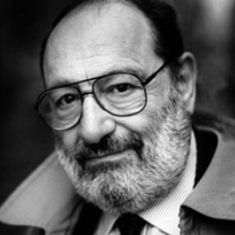Echos from Eco
May 27th, 2009
Last night while not painting, I somehow found the resolve to read the last 100 plus pages of Umberto Eco’s “Foucault’s Pendulum”. I did not like it as much as “In the Name of the Rose” but enjoyed learning more about the Templars. I wonder if writing about them will result in some strange keyword referrals.
I just finished retelling the whole book over tea to a coworker. Now this post will come out a day later and with a lot less fresh memories of finishing the novel. My sleep cycle is really messed up I ended up reading late into the night again…
Needless to say I was familiar with some of the subject matter: The Templars, The Illuminati, the Holy Blood and the Holy Grail are all well known to me. Some other aspects of “The Plan” I was less familiar with, but Bacon or Newton or others being part of secret societies is not a new idea. That was the genius of “The Plan” they used existing references and theories they had come across in their research. They being the three main protagonists in the story who all work together.
It is a long dense novel and I preferred “In the Name of the Rose” which has a very watchable movie adaptation. Of course “The Da Vinci Code” is more famous and has made more money, but Eco’s tales are probably more inventive and well researched, plus written in a much more intellectual style. He also wrote his book before Dan Brown, but not before Leigh, Baigent, and Lincoln. Eco’s books always contain foreign language passages and quotations, which us un-bilingual readers are forced to muddle through. Maybe someone will write Umberto Eco for Dummies.
The central idea of “The Plan” is that the Templars survived Friday the 13th intact and plotted revenge. They would meet every 120 years and after several of these meetings would reveal themselves and take their rightful place as rulers of the world. Alas things go wrong during the six hundred year plan. Which is entirely the devising of the three protagonists anyway. The crazies or Diabolicals believe they have discovered a secret and make them pay dearly for their folly.
Moral of the story, claiming to have hidden knowledge, centuries old, with the ability to change the course of history, is a dangerous claim to make. Upsetting the established political and societal norms is also dangerous or as I often quoted to my MBA classmates
“It is dangerous to be right in matters where established authorities are wrong.”
The corollary would be “It is dangerous to be wrong, but claim otherwise, where the established authorities think you’re crazy.”
I believe the year 1344 figures prominently. And in the book it is 5 meetings 120 years apart. But if you add 666 to 1344 you get the year 2010, which is coming soon so perhaps the Templars will yet take over, or other Unseen Masters. I’m sure someone has a 2010 theory, if not Google will make one up for them or you could just play INWO.
If you have any conspiracy theories you’re welcome to leave them in a comment below.
This entry was originaly posted on , it was last edited on and is filed under: Reviews and tagged: Conspiracy Theories, Literature, Umberto Eco.


After someone was reading this post as a result of a strange keyword search I just tweeted “There are two types of people in the world, those who prefer Foucault’s Pendulum over the Da Vinci Code and those who haven’t read both.”